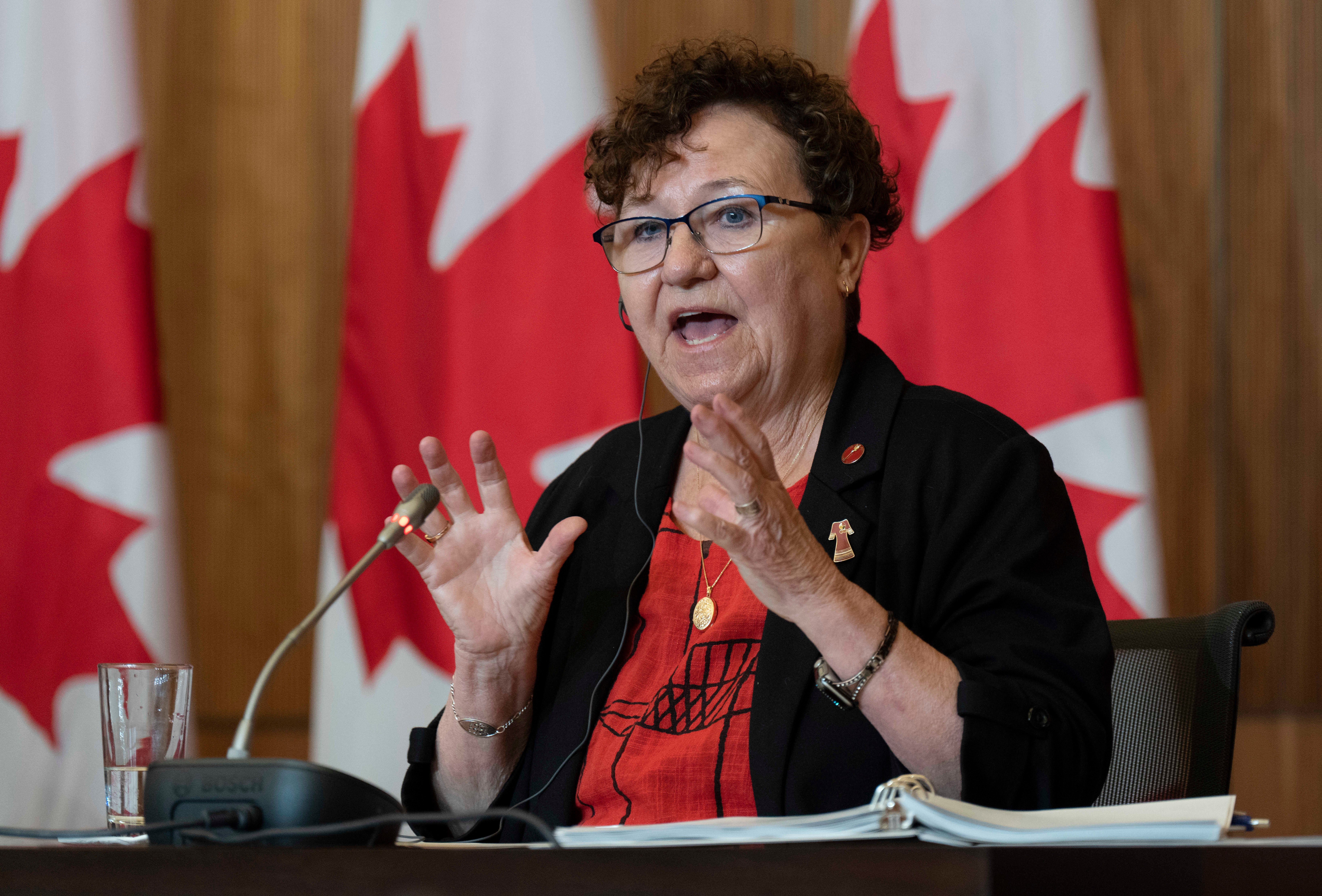Canadian police won't investigate doctor for sterilizing Indigenous woman
Police in Canada say they will not pursue a criminal investigation into a recent case in which a doctor sterilized an Inuit woman without her consent

The Canadian government says it is urgently trying to end the forced sterilization of Indigenous women, describing the practice as a human rights violation and a prosecutable offense. Yet police say they will not pursue a criminal investigation into a recent case in which a doctor apologized for his “unprofessional conduct” in sterilizing an Inuit woman.
In July, The Associated Press reported on the case of an Inuit woman in Yellowknife who had surgery in 2019 aimed at relieving her abdominal pain. The obstetrician-gynecologist, Dr. Andrew Kotaska, did not have the woman’s consent to sterilize her, and he did so over the objections of other medical personnel in the operating room. She is now suing him.
“This is a pivotal case for Canada because it shows that forced sterilization is still happening,” said Dr. Unjali Malhotra, of the First Nations Health Authority in British Columbia. “It’s time that it be treated as a crime.”
Kotaska declined to comment to the AP. Last month, he released a public apology, acknowledging the sterilization “caused suffering for my patient.” He said he was acting in what he thought was the woman's best interest.
The Canadian government has said that anyone who commits forced sterilization could be subject to assault charges and that police are responsible for deciding whether to proceed with criminal investigations.
But the Royal Canadian Mounted Police said they would not be investigating Kotaska, because the woman hasn't filed a criminal complaint.
Kotaska’s statement is “very likely to not be admissible in a criminal court proceeding” and the victim would need to let investigators see her confidential medical records, the RCMP said. The police said they “respect the rights of the victim to seek justice for this through other legal mechanisms and choose which processes she participates in.”
The woman’s lawyer, Steven Cooper, said she is unwilling to proceed with a criminal complaint and remains traumatized from having participated in a medical board investigation.
Lisa Kelly, who teaches criminal law at Queen’s University in Ontario, said there is no requirement in Canada’s legal system for a victim to participate, if there is other compelling evidence.
“In this case, there is another doctor and nurse, and possibly others, who could provide credible and reliable evidence beyond a reasonable doubt that the patient had not consented to the sterilization,” Kelly said.
While police and prosecutors have discretion, Kelly said, they "do not have the discretion to simply turn a blind eye to what appears to be evidence of a serious aggravated assault.”
Sen. Yvonne Boyer, who has proposed law would make forced sterilization itself a crime, said the long history of mistrust between Indigenous people and the police made it difficult for many victims to pursue criminal prosecution.
“If a police officer becomes aware of a crime being committed, they have an obligation to investigate,” Boyer said. “Why would it be any different for an Indigenous woman being sterilized without consent?”
The woman sterilized by Kotaska sued him and the hospital for 6 million Canadian dollars ($4.46 million), alleging his actions were “oppressive and malicious.”
In May, medical authorities in the Northwest Territories suspended Kotaska’s license for five months, forced him to pay part of the cost of their investigation and required him to take an ethics course after finding him guilty of “misconduct.” Noting these punishments were now completed, Kotaska said he hoped to “continue working with humility.”
Emma Cunliffe, a law professor at the University of British Columbia, called it "a very light suspension for forcibly sterilizing someone.”
She added: “It sends a very disturbing message that these violations of Indigenous women are not viewed as serious.”
___
The Associated Press Health and Science Department receives support from the Howard Hughes Medical Institute’s Science and Educational Media Group. The AP is solely responsible for all content.
Bookmark popover
Removed from bookmarks